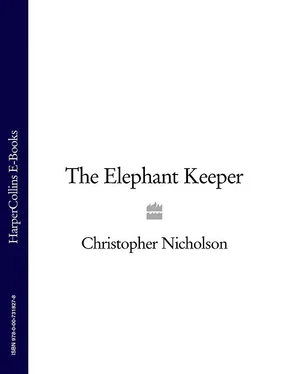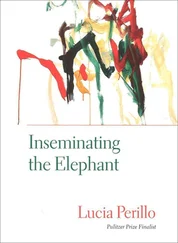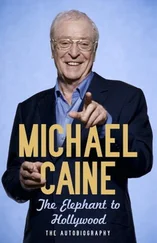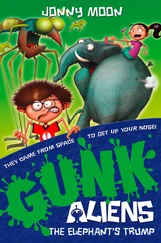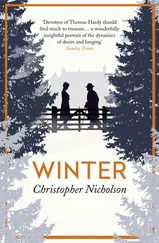Another of their favourites was Lizzy Tindall, a girl of my own age who lived in Thornhill. She was the daughter of the tanner, George Tindall. As children, we had sometimes walked together to the school-house in Gillerton, where she had a great reputation for mischief-making; this grew from the occasion when, having cut off her hair and rubbed mud into her face, she deceived the school-master, old Mr. Gibbons, into thinking that she was a gipsy boy. Here she was successful, but on another occasion, when she claimed to have seen an angel standing in the churchyard, she was soundly whipped for lying. Now she was employed in the Hall as a maid, or spider-brusher, as she called herself, which she found much less entertaining, and when she had time she would steal away, to chat with the grooms or stroke the horses, or to feed sugar to the Elephants. There was always a good supply of sugar in the kitchens, and since they loved it even more than carrots they became very affectionate toward her; indeed on one occasion Timothy became too forward, his trunk slipping from Lizzy’s neck into her bosom. She drew my attention to what he was doing, whereupon I told her to push the trunk out of the way, which she did, pat pat, but soon enough, back came the trunk. ‘Tom!’ she cried, ‘is this not deliberate! What a saucy Elephant!’ Indeed he was perfectly innocent and had no idea of the liberty which he was taking, and I said so; whereupon she tossed her hair (which, when she took off her cap, now hung half way down her back), and laughed, ‘I am not so sure, look at him! Look, Tom!’ and it was true that the Elephant continued to rout round. But there was a reason for this, as I soon discovered, which was that she had hidden a piece of sugar in her bosom, to test him out.
While the Elephants held Lizzy and Margaret as particular friends, there were other people whom they regarded less favourably. Among these were my fellow grooms, Bob Brown and Dick Shadwick. I had once been on good terms with Dick, who was my elder by no more than three years, but since the arrival of the Elephants he seemed to have turned against me. At the time my voice had not yet broken and was still piping and shrill, and whenever he met me he would squeak like a mouse. This feeble joke afforded him vast quantities of amusement. I ignored him, but I could not stand idly by when he and Bob persecuted the Elephants. Bob used to divert himself by tossing the Elephants stones or pebbles, and sometimes they were deceived enough to take these offerings into their mouths, though they would generally spit them out soon enough. When I asked him to stop, he laughed. ‘If they are foolish enough to eat stones, let them do so,’ he said, and this filled me with indignation, for my father had often told me of a race-horse which had choaked after it was purged with too large a ball. The ball had lodged deep in the horse’s gullet, and all efforts to retrieve it with an iron instrument having failed, the animal suffered a miserable death.
I found that my father did not greatly want to hear about Bob’s behaviour, and indeed he attempted to dismiss it as a mere prank, whereupon I interrupted, ‘Father, a prank that could end with the death of the Elephants.’—‘Well,’ said he, with great reluctance, for he hated arguments, ‘I will talk with him.’ My father went and talked to Bob. A short time later, Bob came up to me: ‘Tom,’ he said, ‘forgive me—I am sorry for the stones—and to shew this I should like to give the Elephants an apple each.’ There was a mocking smile on his face, and before I could prevent him he had held out two small green apples. Both Elephants took their apples and put them in their mouths; but while Timothy ground his to pulp, Jenny spat hers out and with it a nail. I was very angry and told Bob what a fool he was. ‘A fool?’ says he, sneering, ‘who are you to call me a fool? A stable-boy!’ I said that, if the Elephants were to die as a result of his apples, he would be the fool, and that, if he did such a thing again, I would tell Mr. Harrington. I had disliked him for years, ever since I had seen him set the tail of a dog on fire. Making animals suffer was one of his favourite sports. He often tormented frogs and toads, and I heard that he once poured a bottle of aniseed over the back of a cat when the hounds were running, and they clapped on the drag and tore it to shreds.
One thing which I learnt from Mr. Coad was that, in the Indies, the captive Elephants were regularly ridden like horses, and I was resolved to try my luck in this respect, though the difficulties seemed formidable, and I could not imagine how it was done. None of the horses’ saddles was broad enough for an Elephant’s back, and mounting only seemed possible if the Elephant were to kneel or lie down, or to stand still while a ladder was placed against its side. What perplexed me most was how the rider, once perched aloft, directed his steed. Horses, with their sensitive mouths, are directed largely by means of the bit and bridle and the reins, and perhaps, I said to myself, Elephants equally have sensitive mouths, but it would take a strange bit and bridle to fit on an Elephant. Even if such a bridle could be fitted, looping under the trunk, and even if the Elephant were willing to accept the bit, would anyone hauling on the reins be strong enough to steer such a powerful beast? I had the ankus as a means of chastisement, but what if the Elephant were so maddened by the rider’s presence on its back that it chose to charge away? What if it chose to unseat its rider by rolling on to its back, as horses do when they do not like being mounted? To be rolled upon by an Elephant would surely be fatal. I thought a little further, and saw that an Elephant, if it so wished, might use its trunk to knock the rider from the saddle. My father, with whom I talked this over, felt that the venture was too dangerous to be hazarded; however, I secretly decided to disregard his advice.
With this in mind, I made a rough saddle out of ropes, and fastened it on Jenny’s back, tying it under her stomach. Although she submitted to this readily enough, within a few minutes her trunk was feeling over the knot and soon enough she had it untied. I tied it again, this time much more firmly, and when she attempted to undo it she failed; but Timothy proceeded to untie it for her. This is no good, I said to myself, and tied it once more, this time with the tightest of knots. Next I made a sign telling her to kneel, which she did, and I was able to climb on—although, as I clung on her back, I found myself unable to make her stand up. ‘Stand up! Stand up!’ She remained kneeling, for in my foolishness I had forgotten that she could only obey me when she could see me.
I therefore had to teach my Elephants to understand human speech, by which I mean not the full range of speech, merely particular words and phrases. Again they were excellent pupils, listening to me with great attention, much as a young dog, anxious to please, will cock his ears and listen to every sound which falls from his master’s lips. Within a month I felt ready to hazard another attempt at riding. This time Jenny rose, and now I was eight or ten feet high, leaning over the ridges of her spine, clutching at ropes, and with my legs splayed horribly by the breadth of her back. Bob and Dick were watching; so was Lizzy, who cried up anxiously asking me if I was all right, and I was about to reply when Bob rammed a hot iron into Jenny’s fundament, whereupon she began to lumber forward. Being unable to grip with my legs, as one would grip a horse, and with the saddle not altogether as secure as I had thought it to be, I lost my balance, and slid over the cliff of her back. Though I put my hands out to break my fall, the pain travelled up my arms and into my elbows. As I lay on the ground, Lizzy rounded on Bob, saying that I might have broke my neck, but he laughed in her face; not for long, however, because Timothy, who had been eyeing these events, swung his trunk and knocked him sprawling. He picked himself up and went away cursing and vowing revenge. I was grateful to Timothy for administering such a swift rebuke; but my elbows hurt, and within half an hour my right elbow was swelling. I tried, that is, I endeavoured, to make light of the pain, by pretending that it was merely a bruise, but that night I could scarcely sleep, and I knew that I must have broke a bone in my elbow. While it healed I supported it by means of a cloth knotted round my neck.
Читать дальше
